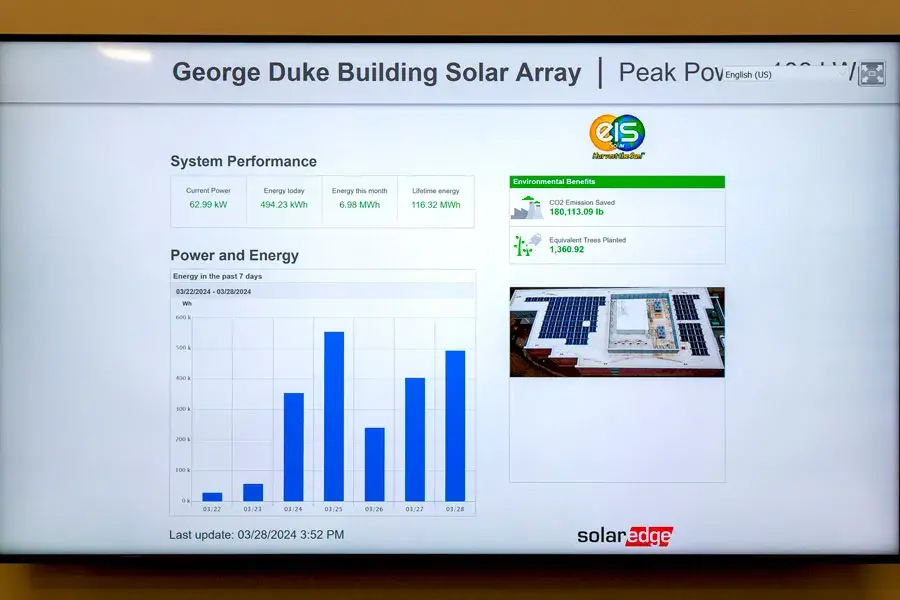
Environmental Studies - BA
As humans interact with the natural environment, well-trained professionals are needed to help understand and solve environmental problems.
Why study environmental studies at Pitt-Bradford?
Our campus is the perfect place to study the natural environment because it is surrounded by nature: the Allegheny River, Allegheny National Forest, Allegany State Park and the Tunungwant Creek (affectionately called The Tuna), which runs along the southern end of campus.
What will I learn?
You’ll examine many local and regional issues, including water quality, forestry, conservation, game management, local agriculture, energy exploration, and alternative and emerging energies. You’ll also study global environmental concerns such as natural resource management, ocean health and food scarcity.

What can I do with a degree in environmental studies?
When you graduate, you'll be prepared for many types of jobs related to the environment. You can study it. Clean it. Manage it. Write stories about it. Even create laws to protect it. Or, you can take what you've learned and go to graduate school.
Job titles:
- Biological sciences technician
- Environmental scientist
- Operations assistant
- Field technician
- Quality assistant
- Law enforcement ranger
- Field researcher
- GIS specialist
Employers:
- Department of Agriculture
- U.S. Forest Service
- Spectra Energy
- Department of Conservation and Natural Resources
- Wellington Energy
- U.S. Navy
- Recycling plants
- Mining industry
- Consulting firm
Success Stories
Kaylee McCracken ’26
Kaylee McCracken’s passion for the environment stems from her childhood. She grew up in New Jersey near the beach, where the residents of her community, pushed to protect the beaches.
Hayden Goldsmith ’27
Hayden Goldsmith put his environmental studies major to work in a real-life industrial setting during his summer internship at International Wax Inc. in Smethport, Pa..
-
PHIL 1445
Environmental EthicsBasic concepts in environmental ethics such as environmental aesthetics, anthropocentricism, holism, and the role of economic systems will be considered and then applied to contemporary issues such as pollution, wilderness preservation, environmental justice, human predation and domestication of animals, and biomedical research. Questions concerning both theory and practice will be addressed, while at the same time recognizing the importance of understanding the historical and cultural contexts of each. Fundamental ethical theory will be covered - no knowledge of ethics or philosophy is presupposed. While the course does not seek to advocate any particular environmental policy its intention is to develop in students the ability to reach informed and reasoned conclusions concerning environmental policy, and to effectively defend such positions. -
PS 1367
Environmental PoliticsA multidisciplinary general education course designed at an introductory level. This course provides students with comprehensive knowledge of the organizations, interests, and processes that shape environmental policy. It explores the local, regional, and global dimensions of the most critical environmental problems and issues facing policy makers today, including land-use management, energy conservation, acid rain, lead poisoning, indoor air pollution (radon pollution), ozone depletion, waste management, waste dumping in the ocean, deforestation worldwide, habitat destruction, and global warming.
Program-Related News

Students present research at Penn-York
Annual undergraduate research conference to be hosted on campus next year.

Gaskew receives award for engaged scholarship
Other faculty publish on history, environmental science and more.

Report says campus making progress reducing carbon
Solar panels added since study will reduce emissions more.

